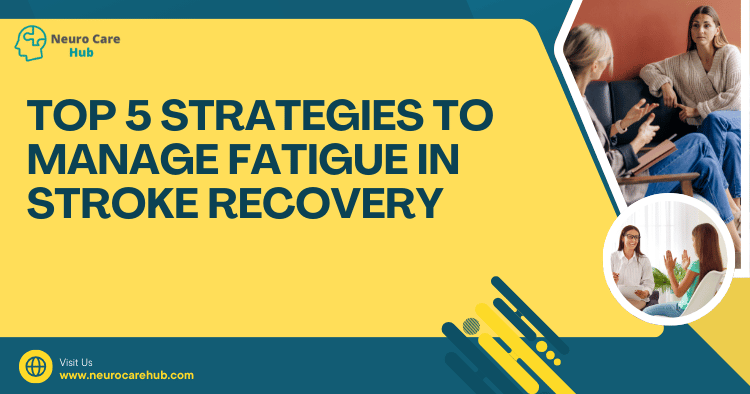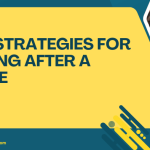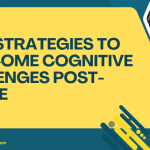Table of Contents
- Understanding Stroke-Related Fatigue
- Prioritizing Rest and Sleep
- Implementing a Balanced Diet
- Engaging in Light Physical Activity
- Utilizing Mindfulness and Stress Reduction Techniques
- Conclusion and Additional Resources
Understanding Stroke-Related Fatigue
Fatigue is a common yet often overlooked consequence of a stroke. Unlike regular tiredness, stroke-related fatigue can be persistent and debilitating. It can manifest as physical exhaustion, cognitive weariness, or emotional depletion. Understanding the nature of this fatigue is essential for effective management.
“Fatigue after a stroke is not just about feeling tired; it can significantly impact daily life and recovery.”
What Causes Stroke-Related Fatigue?
Stroke-related fatigue can be attributed to several factors, including:
- Neurological Changes: Damage to the brain affects how fatigue is processed.
- Physical Deconditioning: Muscle weakness and reduced mobility lead to increased exertion for everyday tasks.
- Mental Strain: Cognitive impairment can make even simple tasks feel overwhelming.
- Emotional Challenges: Feelings of anxiety, depression, or frustration can contribute to fatigue.
For more detailed insights, consider exploring resources from the American Stroke Association.
Prioritizing Rest and Sleep
One of the most critical aspects of managing fatigue is ensuring adequate rest and quality sleep. This might seem straightforward, but for many stroke survivors, establishing a healthy sleep routine can be challenging.
“Quality sleep is vital for recovery; it’s during sleep that the body repairs itself.”
Tips for Better Sleep:
- Establish a Routine: Go to bed and wake up at the same time each day to regulate your body clock.
- Create a Restful Environment: Make your bedroom conducive to sleep — dark, cool, and quiet.
- Limit Daytime Naps: While short naps can be refreshing, long or frequent naps can disrupt nighttime sleep.
Importance of Power Naps
Power naps of 20-30 minutes can help recharge energy without affecting nighttime sleep. Consider incorporating this into your daily routine, especially if you feel fatigue creeping in during the day.
“A well-timed power nap can be a game-changer for your energy levels.”
For more insights on sleep and its impact on recovery, check out Top 5 Ways Sleep Impacts Your Brain Health.
Implementing a Balanced Diet
Food is fuel, and a well-balanced diet is essential for recovery. A nutritious diet can help replenish energy levels and support overall health, which is crucial for stroke recovery.
Key Nutrients to Include:
- Proteins: Essential for muscle repair and recovery. Sources include lean meats, beans, and dairy products.
- Omega-3 Fatty Acids: Found in fish like salmon and seeds, these can reduce inflammation.
- Whole Grains: These provide sustained energy. Opt for brown rice, quinoa, and whole-grain bread.
- Fruits and Vegetables: Packed with vitamins and minerals that support brain health and recovery. Aim for a rainbow on your plate!
“Eating a variety of colorful fruits and vegetables not only supports health but also makes meals more enjoyable.”
Sample Balanced Meal Plan
| Meal | Foods to Include |
|---|---|
| Breakfast | Oatmeal topped with berries and nuts |
| Snack | Greek yogurt with honey |
| Lunch | Grilled chicken salad with mixed greens |
| Snack | Carrot sticks with hummus |
| Dinner | Baked salmon, quinoa, and steamed broccoli |
For more information on nutrition after a stroke, visit the National Institute of Neurological Disorders and Stroke.
Engaging in Light Physical Activity
While it might seem counterintuitive, engaging in light physical activity can actually combat fatigue. Regular movement helps improve circulation, boosts energy levels, and enhances mood.
Recommended Activities:
- Walking: Start with short distances and gradually increase as your strength improves.
- Stretching: Gentle stretching can relieve muscle tension and promote relaxation.
- Chair Exercises: If mobility is limited, consider seated exercises that can be done safely.
“Movement is medicine; even small amounts can make a big difference.”
Creating a Routine
Aim for at least 20-30 minutes of light activity most days of the week. This can be broken down into shorter sessions if needed. Always consult with a healthcare provider before starting any new exercise regimen.
For more ways to enhance recovery, refer to Top 5 Ways Physical Therapy Boosts Stroke Recovery.
Utilizing Mindfulness and Stress Reduction Techniques
Mental fatigue can be just as taxing as physical fatigue. Incorporating mindfulness and stress reduction techniques into your daily routine can help ease mental strain and improve overall well-being.
Techniques to Try:
- Meditation: Even a few minutes of focused breathing can help clear your mind and reduce stress.
- Yoga: Gentle yoga can promote relaxation and improve flexibility, benefiting both body and mind.
- Deep Breathing Exercises: Simple techniques can help lower stress levels and increase oxygen flow.
“Mindfulness practices can be a powerful tool for managing stress and enhancing recovery.”
Suggested Resources
Apps like Headspace or Calm offer guided meditations and mindfulness exercises that can be beneficial during recovery. You can also explore community classes or local resources to find support groups focused on recovery and mental health.
Conclusion and Additional Resources
Managing fatigue during stroke recovery is a multifaceted approach that requires a combination of rest, proper nutrition, physical activity, and mental wellness practices. Implementing these strategies can lead to a more energized and fulfilling recovery journey.
FAQs
1. How long does fatigue last after a stroke?
Fatigue can persist for weeks, months, or even longer, varying by individual. It’s crucial to monitor your progress and discuss any concerns with your healthcare provider.
2. Can fatigue be a sign of a stroke?
Yes, sudden fatigue, especially when accompanied by other symptoms like weakness or speech difficulties, can indicate a stroke. Seek immediate medical attention if you or someone else experiences these symptoms.
3. Is it normal to feel emotional fatigue after a stroke?
Absolutely. Emotional fatigue is common due to the stress of recovery, and it’s important to address these feelings as part of your overall health.
For further reading, consider these authoritative resources:
– American Stroke Association
– Mayo Clinic
– National Stroke Association
“Remember, every recovery journey is unique. Embrace the process and seek support when needed.”
Remember, every recovery journey is unique, and it’s important to find the strategies that work best for you. Embrace the process, and don’t hesitate to reach out for support along the way!






